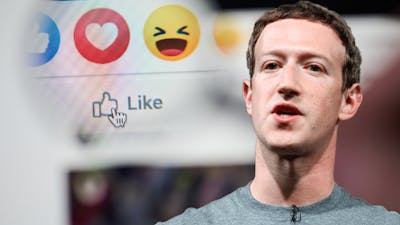
Authored by John Tamny via RealClearMarkets.com, Andy Kessler writes in his latest Wall Street Journal column that the U.S.
“is strong precisely because we don’t all think the same way. New ideas come from new ways of thinking.” Kessler puts it so well.

We individuals generally see the present and future very differently, and it’s this very division praised by Kessler that powers so much advance. The entertainment industry explains the business meaning of Kessler’s thinking well. Chevy Chase was offered the role of Otter in Animal House , but chose Foul Play instead.
Donald Sutherland was offered $20,000 plus gross points in Animal House , but instead held out for $35,000 minus the points given his deep belief that the small movie wouldn’t generate much box office. Chase and Sutherland’s errant business choices remind us that the good and great decisions are rarely obvious at the time. The previous truth would in a better world awaken the political class to how wrongheaded its actions vis-à-vis TikTok are.
Implicit in their attacks and their legislative role in a TikTok ban is that TikTok’s alleged CCP-generated popularity will be used to spy on Americans with an eye on bringing the CCP’s authoritarian ways to the United States. More realistically, data on Americans is the most valuable in the world, and it’s already sold around the world for exactly that reason. Which is a reminder that data on the American people already existed (and will exist) in abundance with or without TikTok, and it will be sold around the world (including to producers, politicians, or both in China) with or without TikTok.
At the same time, the desire among the world’s producers to know about us Americans is something to celebrate, not legislate against: they want to know about us because we’re the most productive people on earth. The better they understand us, the better their ability to meet and lead our needs. What’s important is that the prosperity of the American people is, per Kessler, borne of freedom; of Americans disagreeing about everything and getting to vivify their discordant viewpoints in the marketplace.
Economic progress is the happy end result of disagreements expressed. We generally describe those who express disagreements via the profit motive as entrepreneurs . Bringing the genius of disagreement back to TikTok, protectionist U.
S. politicians shouldn’t seek a ban, rather they should allow commerce in the U.S.
to freely run its course. And they should do so confidently based on what happens every day in the United States. What we routinely see in our dynamic markets is that the giants always stumble, and they do because per George Will, tomorrow is another century.
Particularly in business, the present is a really lousy predictor of the future. Tim Matheson eagerly coveted the role of Otter that Chase turned down, but as he explains in his excellent new memoir, Damn Glad to Meet You (review forthcoming), “going into a project, you rarely know” if it will be a hit or a box office dud. The main thing is that disagreement about what will meet and lead the needs of the consumer is what puts the past and present out to pasture, not protectionism.
Protectionism is about limiting and disfiguring the choices of people, not allowing an endless debate within the marketplace to sort out what the future will look like. At present, U.S.
politicians and the courts are in the process of using force to vanquish a U.S.-owned competitor in TikTok that had the temerity to discover the needs of American consumers in ways the competition hadn’t.
How dangerous to use force to suffocate this market signal. Better to rely on freedom..















